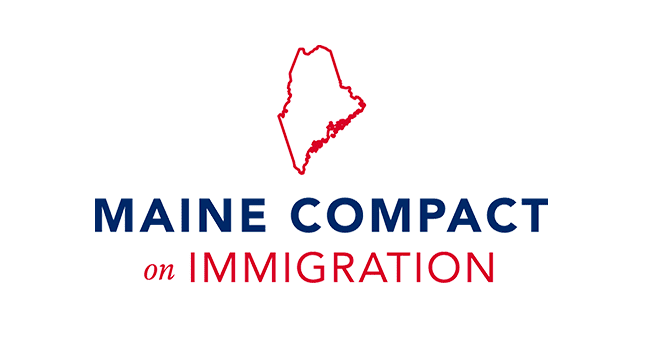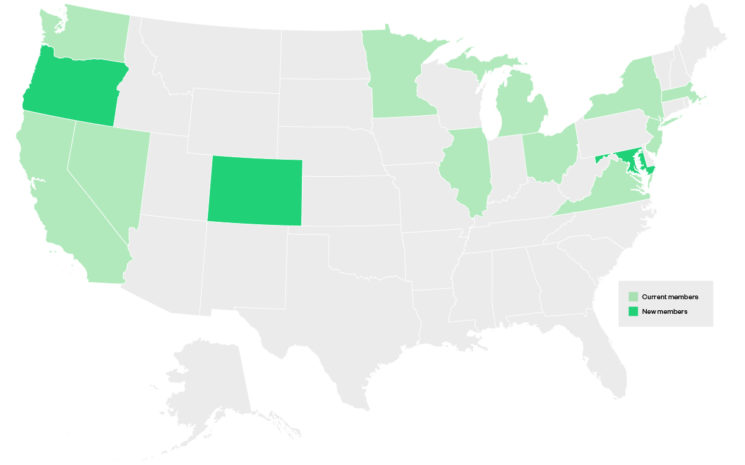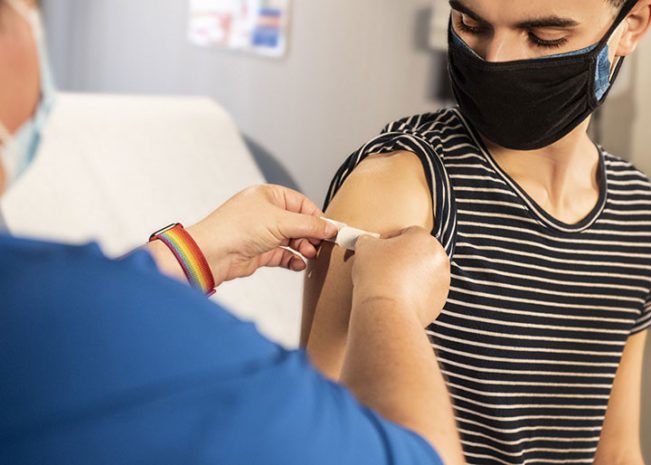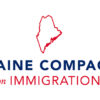2021 Mid-Year Report
Date: July 8, 2021
Dear Friends and Supporters,
In the past six months, we have witnessed a sea change on immigration: The American Dream and Promise Act and Farm Workforce Modernization Act passed the House with bipartisan support; the Muslim ban, Public Charge rule, and major cuts to refugee resettlement have been reversed; and proposals to create a path to citizenship for the undocumented, improve our legal immigration system, and meaningfully address challenges at the border have been introduced in both chambers of Congress. At the same time, there is so much work to be done: to finally provide permanent protection to Dreamers, TPS holders, farmworkers, and the undocumented; to re-open and expand legal immigration channels and create a more workable immigration system; to clear the untenable USCIS and immigration court backlogs; and more.
As we pause to look back on everything we have accomplished together so far this year — on immigration, in the fight against COVID-19, and in our efforts to build a more inclusive, pluralistic democracy — we have many reasons to feel a renewed sense of optimism. Yet the fight to pass immigration reform remains an uphill battle, and we are prepared for the difficult months ahead.
We are excited to share with you the progress we’ve made together in 2021, and, as always, we are grateful for your continued partnership and support of this important work.
A New Approach to Immigration: Tracking Progress on NAE’s 21 for ‘21
Following the 2020 presidential election, NAE published our 21 for ‘21: 21 concrete recommendations for fixing America’s broken immigration system in 2021. As with all of our work, our goal is to push for changes that are both meaningful and achievable, and at each step of the way, we’ve worked to back up these recommendations — releasing compelling new data nearly every week; publishing dozens of op-eds highlighting immigrant essential workers in national and local media outlets; hosting numerous briefings with local, state and federal officials; and mobilizing hundreds of business leaders across key states like Texas, Ohio, and Colorado to pressure Congress to take action.
- End family separation at the border and reunite separated families
- Rescind the discriminatory Muslim ban
- Reverse the public charge rule
- Streamline the process for international students and staple green cards to the diplomas of STEM graduates
- Restore fairness to the U.S. asylum process
- Restore the U.S. refugee resettlement process
- Create a federal Office of New Americans
- Modernize U.S. ports of entry
- Protect DACA/Dreamers
- Provide a path to citizenship for essential workers
- Reverse the H-1B and other nonimmigrant visa bans and reform the H-1B visa system to boost American innovation and better protect American workers
- Create new visa pathways for essential occupations
- Protect TPS Holders and provide them a path to citizenship
- Address the factors that contribute to brain waste like reducing burdensome occupational licensing barriers
- Reform the H-2A visa and provide a path to citizenship for farmworkers
- Reform the H-2B visa program
- Create a Start-Up visa for immigrant entrepreneurs
- Give states and localities a role in the immigration process
- End per country caps and clear the USCIS backlogs
- End the three and ten-year bars
- Invest in English language and U.S. civics instruction
While there is still so much to be done, we are pleased to see the progress that has been made in such a short period of time:
- From the day they assumed office, the Biden-Harris administration has worked to reverse many of the Trump administration’s most harmful immigration policies, implementing a slew of executive orders and actions like rescinding the Zero Tolerance policy and creating a task force to reunify separated families (#1), reversing the Muslim ban (#2), and preserving and fortifying the DACA program for Dreamers (#9), and protecting Temporary Protected Status holders from numerous countries while adding TPS for Venezuelans (#13). And in March, the House passed the Dream and Promise Act to create a path to citizenship for Dreamers and TPS holders with bipartisan support.
- President Biden’s Day 1 immigration bill, the U.S. Citizenship Act of 2021, also included many of the priorities outlined in 21 for ‘21, including making it easier for STEM graduates to stay and work in the U.S. (#4), giving states and localities a larger role in the immigration process (#18), ending the 3- and 10-year bars (#20), and increasing funding for English language instruction (#21), among other key provisions.
- Additionally, the Biden-Harris administration recommitted the United States to our humanitarian obligations, signing executive orders to rebuild the U.S. refugee resettlement program, honoring their campaign commitment to raise refugee admissions to 62,500 for the second half of this year (#6), and restarting the Central American Minors program, as well as beginning to roll back barriers to asylum — like narrowing the definition of who qualifies and ending the “Remain in Mexico” policy — put in place by the previous administration (#5).

- Recognizing the importance of immigration to America’s economic recovery out of the COVID-19 pandemic and recession, the White House ended President Trump’s immigration and travel bans, revoked the “Buy American, Hire American” executive order and took additional steps to make the H-1B program more workable (#11), rescinded the harmful Public Charge rule (#3), and has taken steps to re-open pathways for international students (#4), with reports of additional actions to rebuild legal immigration on the way. And just last month, Reps. Zoe Lofgen (D-CA) and John Curtis (R-UT) introduced the Equal Access to Green cards for Legal Employment (EAGLE) Act, which would eliminate country caps for employment-based visas (#19) and take additional steps to protect U.S. workers.
- Together, Congress and the administration have also taken steps to improve and expand pathways for immigrants fulfilling essential roles in America’s labor force. In March, the House passed the Farm Workforce Modernization Act which would reform the H-2A visa system and create a path to citizenship for immigrant farmworkers (#15), and in April DHS announced 22,000 additional H-2B visas, including 6,000 reserved for individuals from the Northern Triangle (#16). Democrats in the House and Senate also introduced the Citizenship for Essential Workers Act, which would provide a path to citizenship for up to 5 million people working in key roles across a variety of industries (#10).
- The White House also outlined numerous immigration priorities in the President’s FY2022 discretionary funding request, including funding to support an increase to 125,000 refugee admissions (#6), clear the naturalization and asylum backlogs (#19), provide critical support services to children separated from their families (#1), and modernize U.S. ports of entry (#8).
We know these changes will have a real impact. Earlier this year, NAE quantified the impact of the Trump administration’s restrictions on immigration, finding significant decreases across new arrivals, naturalization rates, and other measures.
Note: FY2020 Q4 data on new arrivals is still pending, however, given the ongoing Covid-19 pandemic and the travel restrictions in place, we believe the overall trend will be the same as was seen in FY2020 Q3
Many of these restrictions, some of them COVID-19 specific, have now been lifted, reopening vital economic and humanitarian immigration channels at a time when the U.S. is continuing to grow out of the pandemic recession.
Expanding the Map: Winning on Immigration in Red and Purple States
Significant improvements to federal immigration policy, as well as the drastic change in tone from the new administration, should not overshadow the important victories happening in cities and states across the country. In many ways, new Americans and their neighbors feel the impact of these measures even more directly — and they also help demonstrate that it is possible for Republicans and Democrats to work together on practical efforts to achieve meaningful change.
During the first half of the year, NAE’s State & Local Team has continued to grow our reach and impact across the country through initiatives like Gateways for Growth (in partnership with Welcoming America), the Office for New Americans (ONA) State Network (in partnership with World Education Services Global Talent Bridge), the Global Talent Chamber Network, and our statewide business coalitions.

- Mobilizing 600+ business leaders in battleground states: This year, NAE launched a new State Compact in Maine — signed by more than 100 business groups and universities — that led to unprecedented support for bills that reduce workforce barriers for skilled immigrants. Maine brings the number of business-led State Compacts on Immigration to eight states (including Texas, Iowa, Utah, Florida, Colorado, Michigan, and Ohio), with more than 660 business and civic leaders signed on in total. Business coalitions in Ohio, Colorado, and Texas hosted meetings with five U.S. Senators and 12 U.S. Representatives to advocate for passage of the Dream & Promise Act, Farm Workforce Modernization Act, and visa reform to keep their states competitive.
- Increasing the number of statewide Offices for New Americans from nine to twelve: NAE supported the creation of three new statewide Offices for New Americans — in Colorado, Maryland and Oregon — through research, testimony, and technical assistance, bringing the total number of offices or state-wide positions to 12. Our team also supported passage of professional licensing bills in Maine and Colorado through research and testimony in the legislature.

- Creating a platform for state leaders to share inclusive COVID-19 response and recovery strategies and engage with the Biden-Harris administration: Along with our partners at World Education Services Global Talent Bridge (WES), NAE facilitated exclusive briefings with high-level federal officials from USCIS, Department of Homeland Security, and Office of Refugee Resettlement for our state government partners. ONA network members also participated in briefings with the White House and Department of Health and Human Services. Through the ONA State Network, NAE also facilitated peer-learning calls and webinars on state and local responses to the COVID-19 pandemic, including on contact tracing and testing, vaccine messaging and distribution, and using American Rescue Plan funds to address immigrant inclusion (the American Rescue Plan webinar on June 17, 2021 — in partnership with National Partnership for New Americans (NPNA), Cities for Action, and WES — featured more than 160 participants representing 36 states and 87 different communities).

- Increasing adoption of cash assistance programs for excluded workers and other inclusive recovery strategies: While California was the first state to launch a cash assistance fund for excluded workers in April 2020, frequent conversations about this type of relief within the ONA State Network have resulted in more than 10 states following suit, including Colorado, Nevada, New Jersey, and Washington. In April 2021, the New York State legislature approved a $2.1 billion excluded workers fund — by far the most expansive in the country. Meanwhile, Washington Governor Jay Inslee and the state legislature have so far invested $467 million into the Washington COVID-19 Immigrant Relief Fund. The ONA State Network has tackled other related issues, including language access, launching culturally-competent communications campaigns, reducing barriers to licensing for internationally trained healthcare professionals, partnering with community partners on outreach strategies, data privacy, and more.
- Building local capacity, now in more than 100 communities nationwide: In partnership with Welcoming America, NAE launched the fourth cohort of Gateways for Growth, all 19 communities are receiving customized research reports and, of those, nine were awarded direct technical assistance to support the creation of a strategic immigrant integration plan, bringing the total number of G4G communities to 71 communities across 35 different states. NAE also supported local legislative efforts for immigrant inclusion through testimony and customized research, including support for the creation of Indianapolis’ pilot Legal Defense Fund program and San Diego County’s creation of the Office of Immigrant and Refugee Affairs.

Promoting a More Inclusive, Pluralistic Society
Despite major changes in the federal government’s approach to immigration, damaging rhetoric directed at immigrants, Asians and Asian-Americans, Muslims, and other minority groups over the past four years has led to an increase in division and violence in communities across the country that will take a concerted effort to undo. Over the past six months, we have continued to make significant investments in research, storytelling, arts and culture, and other special programming to combat xenophobia and division and work toward a more inclusive, pluralistic society.
At NAE, our approach to narrative change begins with compelling research. In the first half of this year, our research team:
- Partnered with the Leaders Forum, which provides leading analysis of Asian American demographics and related public policy issues, to commemorate Asian American and Pacific Islander Heritage Month with a series of reports that took a closer look at the U.S.’ AAPI population, both in terms of their many contributions and achievements but also at what socioeconomic challenges remain for many in the community.
- Updated Map the Impact with the latest data from the 2019 American Community Survey, highlighting the important roles immigrants are playing in the 100 largest metropolitan areas across the United States.
- Completed a deep dive into undocumented immigrant population, providing a better understanding of their demographic makeup and economic contributions as multiple bills move through Congress that would create a path to citizenship for the 11 million.
- In conjunction with the Presidents’ Alliance on Higher Education and Immigration, a coalition of hundreds of college and university presidents, we launched the first comprehensive report looking to quantify the number and contributions of undocumented and DACA-eligible students in higher education.

- Released two new reports that show how immigrants contribute more to both private non-marketplace health insurance and to Medicare than is spent on their behalf. The reports were covered in detail by Yahoo! Finance.
- In partnership with EnvoyGlobal, NAE released a report looking at how Covid-19 has impacted specific parts of the U.S. labor market, in particular, high-skilled and specialty occupations. The report was widely covered by CNBC, Vox, and UPI.

- Updated our signature report, the New American Fortune 500, looking at the latest list of the country’s 500 largest corporations to find that 44 percent of the Fortune 500 were founded by an immigrant or the children of immigrants.
Our Storytelling Team helps make these figures personal, lifting up the voices of immigrants and refugees, as well as their neighbors, employers, and communities in national and local media outlets across the country. From January to June of this year, NAE placed op-eds in 67 unique publications, highlighting nearly 50 stories about immigrant essential workers, as well as 26 individuals advocating for passage of the American Dream and Promise Act of 2021.
These includes stories from Dr. Vasu Voleti, regional associate chief medical officer for a hospital system in rural Southern Indiana, in the Indy Star; Mayor Jenny Wilson advocating for Utah’s Dreamers in the Salt Lake Tribune; Anne Valentin Saint Brave, a nursing assistant and mother of two in Orlando, FL whose husband was deported, in USA Today; and dozens more. Since its inception just a few years ago, the Storytelling Team has published nearly 500 pieces.

Launched in 2019, NAE’s Arts & Culture program continues to expand our efforts to change the narrative on immigration, reaching new audiences through exciting new initiatives and partnerships. This year, NAE:

- Launched The Film Club, a monthly virtual film series focused on immigrant filmmakers and subject matters related to the immigrant experience in America. Each month, NAE screens a movie for free and then hosts a virtual discussion with a key member of the film team to discuss themes of immigration. Earlier this year, we hosted an exclusive screening of Minari, in partnership with A24, featuring a Q&A with actor Steven Yuen, writer/director Isaac Lee Chung, and producer Christina Oh, moderated by Ramy Youssef. NAE was also part of a text chat for The Donut King screening with ITVS. The event was attended by more than 500 people, with ITVS’ most diverse audience to date (98% said their awareness of immigration and refugee issues increased as a result of the event).
- Launched The Lit Club, in partnership with Fable. The Lit Club by NAE is a book club and living resource focused on literary works shedding light on the immigrant experience in its many forms. The goal is to introduce participants to a new and wide range of immigrant stories, exploring the variety of lived experiences. NAE announces Lit Club special selections and at the end of each book cycle, hosts a live discussion between the immigrant author and a special moderator.

Finally, NAE partnered with the YMCA to develop a capsule curriculum, the Youth Unity Program, to teach American kids — foreign-born and native-born — the basics of the U.S. immigration system and the benefits of diversity and inclusion so that they have the tools to develop informed opinions and accurately assess what they hear in the media, and from others, every day. The program aims to give them the skills to communicate with people from different backgrounds and the ability to participate in productive dialogue around tough issues like immigration. The Youth Unity Program is currently in the middle of its pilot phase, where it will ultimately reach 200-300 teens across ten local YMCAs across the country. Phase 2 of the pilot will launch later this year, with 25 participating Ys and several hundred students.
Thank You
As we emerge from the COVID-19 pandemic and continue the hard work of rebuilding our communities, we will keep fighting for an America that is safe, inclusive and welcoming to all. The next few months will be crucial in the effort to pass immigration reform, and this may be the best opportunity we have had in the past decade to finally achieve meaningful progress. Thanks to you, we are building capacity and organizing key leaders in the places where it matters most. We look forward with hope to the second half of the year, and to continuing to do this important work together.
Warmly,
The NAE Team



